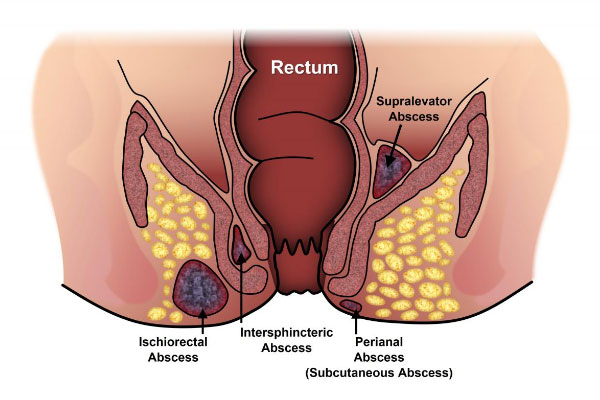What are Perianal Abscess?
A perianal abscess is an abscess found around the anus. An abscess is a collection of pus, which is a yellowish-green liquid produced by infected tissue.

A perianal abscess is an abscess found around the anus. An abscess is a collection of pus, which is a yellowish-green liquid produced by infected tissue.

Most patients with perianal abscess complain of:
Perianal abscess is caused by a bacterial infection of a small gland just inside the anus. Perianal abscesses are more common in patients suffering from Crohn’s disease and diabetes mellitus.
Perianal abscess is more commonly seen in certain high risk groups who have:
Your doctor will make a diagnosis of perianal abscess by taking a detailed history and looking at the affected area. Your doctor may advise routine blood tests and may send drained pus for culture.
Antibiotics, pain killers, laxatives, and warm baths provide temporarily relief, but a perianal abscess needs to be surgically drained.
Incision and drainage is a simple procedure in which a small opening is made in the perianal abscess so the pus can be drained from the infected cavity. Due to its location and pain, your doctor may recommend performing it in an operating room under general anesthesia.
In some persons, pus may drain spontaneously. In these cases surgery may not be needed. Your doctor will advise you further after a thorough examination.
Physical activity is encouraged as is tolerable. You should not lift heavy objects nor do strenuous exercise untill wound is healed.
No specific dietary restrictions are needed.